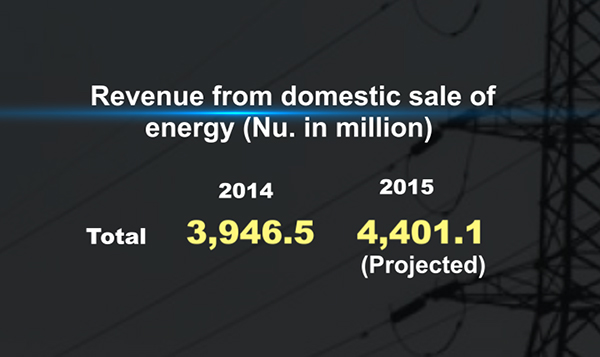 Revenue from the sale of energy in the domestic market would increase by Nu 454 million this year on account of the recent revision in tariff and projected increase in domestic consumption.
Revenue from the sale of energy in the domestic market would increase by Nu 454 million this year on account of the recent revision in tariff and projected increase in domestic consumption.
Total revenue from the sale of energy in the local market would increase from Nu 3.9 billion last year to Nu 4.4 billion this year. This is almost equivalent to the revenue generated by the tourism industry last year.
Electricity tariff was revised for both low voltage consumers and industries starting July this year. For low voltage consumers, tariff was revised by an average 15 percent.
Including industries and households, there are more than 163,000 electricity consumers in the country.
Electricity tariff in the country is revised based on cost-plus model which means, whatever cost the Bhutan power corporation incurs is accounted for in the tariff which consumers ultimately pay.
Critics are of the view that even if BPC invests in a lot of unnecessary cost, it would be accounted for in the tariff that consumers land up paying for it ultimately.
The Managing Director of Bhutan Power Corporation, Gem Tshering said unnecessary cost is always kept at a minimum.
“Given that our tariff proposal has to be reviewed by Bhutan Electricity Authority and since we are also a company owned by Druk Holding and investments, we cannot afford to incur unnecessary cost.”
The Managing Director said, industries should not complain that they are suffering because of the revision in electricity tariff. There are a lot of other factors that is affecting them.
The rate at which industries buy electricity from BPC is the lowest in the region, the managing director said.








